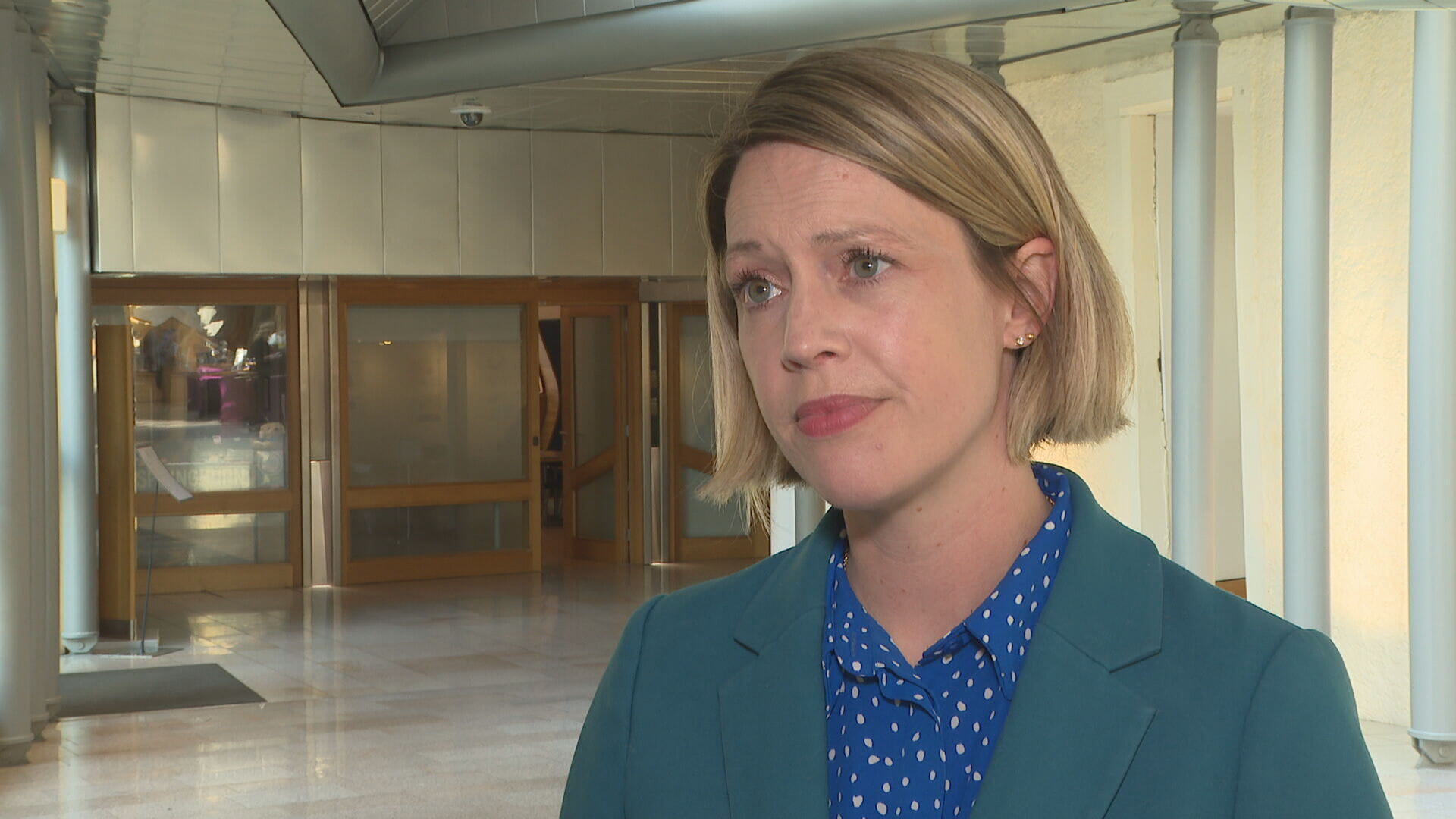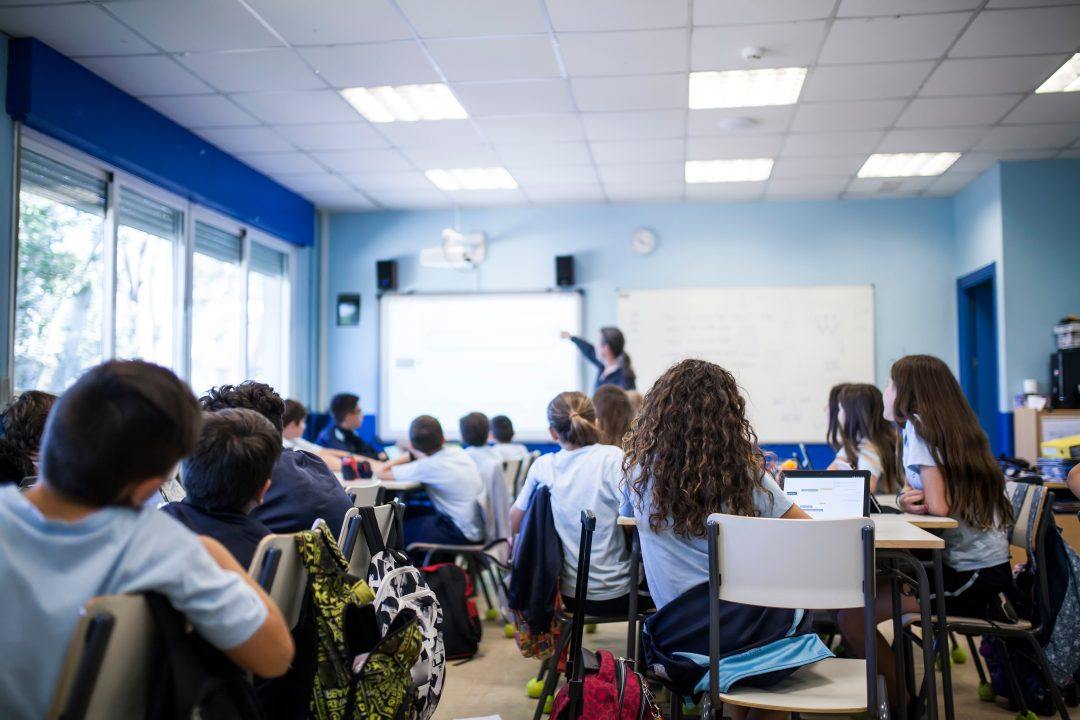Teachers say they are at “breaking point” and unable to cope with the number of pupils now classed as having additional support needs in classrooms.
Two teachers, each with over a decade of experience in the profession, have told STV News they’ve seen staff “broken at the end of the day and in tears” as a result of what they say is underfunding and a lack of resources.
Lucy and Megan (*not their real names) work in primary and secondary education.
They said it’s “physically impossible” to provide the quality of education that all pupils are entitled to while meeting the needs of all additional support needs (ASN) in their class.
It’s “demoralising”, said Lucy. “We come into this job because we care about our children. It’s heartbreaking to watch the children that we care about not getting what they are absolutely entitled to and what they deserve.”
An ASN can refer to pupils with conditions such as autism or ADHD as well as medical needs. It can also refer to pupils with complex home environments or serious behavioural issues.
Megan said: “I think the definition of ASN is something that’s subtly but definitely changed over the years.
“It could be social, emotional, behavioural needs. It’s a term that’s become so vast.”
Lucy added: “Next thing you know, you’ve got 75% of your children on additional support needs paperwork. All meaning that they need a tailored education programme for them, plus the remaining children within your class. You’re then looking at 17 lessons for one lesson to support those children.
“You are one person, and again, if you don’t have support within the classroom, you cannot physically give a well-rounded education to all of those children all the time. It’s just not physically possible.”
A record high
Across Scotland, there is a so-called “presumption of mainstream schooling” for pupils with ASN to be educated alongside their peers with the right support.
Yet, the number of pupils with an ASN has soared to a record high of 40.5% – that’s over double the amount ten years ago, increasing by 102.4% over the last decade.
At the same time, teacher census figures show that the number of additional support needs teachers fell to a record low of 2,837 in 2024 – down from 3,077 in 2014.
In a survey of members by teaching union the NASUWT, seen by STV News, over 94% of respondents said the workload of teachers had increased as a result of “underfunding of specialist services for ASN”.
The majority of those surveyed (76.65%) were not specialised ASN teachers but almost all (99.2%) said they teach pupils with ASN and 92.3% said the number of ASN pupils in their classroom had increased in the last five years.
Yet, at the same time, 69.3% said the level of support for ASN pupils had decreased in the last five years, with 36.4% saying they rarely receive the support needed to teach ASN pupils effectively.
‘Dysregulated behaviour’
Within the survey, members were also asked about violence, abuse and threats while doing their job.
In the last year, 80.6% of those surveyed said they had experienced verbal abuse, 59.2% experienced physical abuse and 53.9% experienced physical assault.
The majority said these experiences were at least on a weekly basis with 66.2% saying they are becoming more serious.
When asked if incidents of rising violence are linked to the lack of support for additional support needs, Lucy said: “I think a number of the violent behaviours that we see within schools – and it’s not all violent behaviours, some violent behaviours come from things that have happened at home – but some violent behaviours within schools do come from dysregulated children with additional support needs, because their needs aren’t being met.”
Often a child with ASN who displays aggressive or violent behaviour will be categorised as “dysregulated”, a term which Lucy and Megan said can become “a buzzword that we see often in education”.
Lucy said: “So a dysregulated child could be a child who is screaming on the floor, who is incredibly upset and distressed, who may be swearing.
“Dysregulated behaviour may look like a child throwing a chair, it may look like a child punching the wall beside your head, a child being severely distressed, screaming in your face.”
She added: “You are having to remain calm and consistent for that child. I’ve had children punching beside my head. I’ve had a child tell me ‘I wish I had a gun so I could shoot you in the face’.
“Keeping yourself regulated in order to deal with that, to not get angry, to not get upset, to not take it personally is very challenging. And no teacher should be exposed to that. But no child should be exposed to that either.”
I have staff who have been spat on, who have had threats of rape, threats of murder.
Megan said: “I have staff who have been spat on, who have had threats of rape, threats of murder. I’ve had staff be told, usually by boys, ‘I know where you live, I’m going to come and see you in your house’.”
She added: “Teachers are powerless. They can report it, but nothing’s going to happen, especially if that child is deemed to have an additional support need.
“Not that I’m advocating for exclusions because I think the picture is very complicated, but exclusions used to happen a lot. Now it’s kind of frowned upon to exclude the child.”
Funding pledges
The Scottish Government previously announced a package of £28m to employ more specialist staff and teachers along with a further £1m to help recruit and train more ASN teachers.
However, Mike Corbett, national official for NASUWT Scotland, said: “The Scottish Government say, and this is accurate, that they’re spending more on additional support needs than ever before. But that’s not matched the exponential increase in the number of pupils with additional support needs.
“So, when we looked at the statistics alongside our ASN survey, the spend per pupil with additional support needs has dropped in around the last ten years.”
If you speak out against it, you’re told this is the landscape of teaching.
Lucy and Megan also believe the true extent of teachers’ concerns are not being heard.
“If you speak out against it, you’re told this is the landscape of teaching. This is what teaching is. If you can’t deal with it, you need to get out of the job,” said Lucy.
“We are placing the blame on teaching staff who are fundamentally – we have to be honest about it – entirely under trained for the needs that are in front of them.”
She added: “It’s not just teachers voices that are being silenced. It’s head teachers voices. It’s senior management voices. It’s social work voices. You know, there can be a number of agencies screaming for support for this child, but ultimately they’re not the people that make the decisions. It’s the decision makers that are ultimately failing our children.”
Mr Corbett said “honesty” is needed from politicians about the reality of what teachers face.
He told STV News: “Mainstreaming simply isn’t working in practice. It’s all very well to have principals about a presumption of mainstream.
“But that’s not the situation we’re in at the moment. I think we need a step back and look at these policies and whether or not they are working.”
He added: “So may of our teachers are at the end of their tether because they’re having to sit there and make terrible choices because they know they don’t have the time and the resource to support everyone.”
Megan said despite the challenges the rewards of teaching still motivate her: “We are burnt out, we’re exhausted. And it’s the children that ultimately pull us through at the end of the day, That is the reason why we stay in teaching, because it’s for those children.”
 STV News
STV NewsEducation secretary Jenny Gilruth told STV News: “Undoubtedly, it’s a challenging survey for the government to respond to, but also for local government, and of course the government throughout budget negotiations has put in extra funding for additional support needs.
“We know that is where the funding is needed most. We know that has been the ask from the profession, and when we announced that extra funding, the teaching unions welcomed that investment.
“Teachers are employed by local authorities and I do accept there are real challenges in our schools, particularly post-Covid.
“But in government we’ve got to work with local authorities to drive the improvements we need to see in our schools. We need to create the headspace for teachers and the time, which is why reducing class contact is so important and was another key part of the recent budget agreement with local authorities.”
Follow STV News on WhatsApp
Scan the QR code on your mobile device for all the latest news from around the country





























